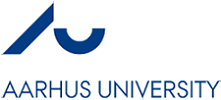Philosophy

Philosophy is reflection – it advances our understanding of reality and our place within it by raising fundamental questions. Philosophers analyse the content of concepts and claims that common sense and science take for granted. They investigate the conditions of human experience and understanding from the most comprehensive perspective, and they discuss our current norms, values, and practices. By exploring the facts and fictions of theoretical and practical rationality within science and society, philosophy provides the interpretive discourses and logical tools that allow us to generate and maintain transparency in how we reason about what we are and what we do. The MA programme in philosophy at Aarhus University offers advanced courses in the main areas of contemporary professional philosophy, taught by professors with doctoral degrees from leading international departments including Cambridge, Oxford, Pittsburgh, Canberra (ANU), St Andrews and Tübingen. The guiding principle of our curriculum is to offer our students a learning environment that encourages specialisation but never loses sight of general philosophical competencies: that provides the best philosophical education and the best career opportunities.
The programme familiarizes students with topics that are currently at the forefront of the professional research debate in philosophy. The programme as a whole, however, is also committed to teaching “philosophy that matters” – both for society and for science.
Track A engages students in the most important and intriguing current issues in theoretical analytical philosophy. Our courses and student projects address research questions within a wide variety of topics such as aspects of the epistemology of counterfactual reasoning; skepticism; conceptions of rationality; the metaphysics of time, space, and modality; process ontology; philosophical aspects of embodied cognition research; and theoretical aspects of social robotics. Special attention is also given to methodological questions about the relationship between the philosophy of cognition, and the empirical study of human cognition in cognitive psychology and neuroscience.
Download a short presentation of the Master's degree programme in Philosophy 2014.
Į magistro studijų programas gali stoti visi, baigę universitetą arba besimokantys paskutiniame kurse. Studijos kurias baigei ar tebesimokai turi būti panašios krypties kaip ir tos, į kurias nori stoti, kadangi priėmimas yra paremtas ECTS kreditų suderinamumu.
ECTS kreditų išrašas - jei dar nesi baigęs aukštosios mokyklos, būtina prisegti ECTS kreditų išrašą, kuriame būtų matyti, kokius dalykus Tu mokeisi bei kokius pažymius ir kiek kreditų už juos gavai. Kai siunti anketą paskutiniame kurse, diplomą reikia prisegti vėliau, kai tik jį gausi.
Bakalauro diplomas – jei jau esi baigęs aukštąją mokyklą, išrašo nereikia, užtenka prie anketos prisegti savo Bakalauro diplomą.
Anglų kalbos žinias gali patvirtinti vienu iš šių būdų:
- IELTS – 6.5
- TOEFL – 83 . Aarhus universiteto TOEFL kodas yra 8935.
Track A consists of two years' study of philosophy.
To fulfil the admission requirements for track A, the student must have completed a Bachelor’s degree in philosophy or including philosophical content.
A Bachelor's degree in a humanistic subject combined with a supplementary subject in Humanistic Organisational Development (2010 academic regulations), where the average grade of graded exams is no less than 7, is also sufficient for admission to the Master's degree programme in philosophy.
In addition to the general documentation requirements, you must upload the following documentation to your application:
Bachelor’s students without a Bachelor’s degree with Philosophy as their main focus must upload a Statement of relevance in English (1-2 pages) which explains:
- the relevance of your Bachelor’s degree in relation to the Master’s programme
- your career plans
- the courses in your Bachelor’s degree which have particular relevance to the Master’s programme
Along with the application the applicant must upload:
- Course descriptions in English briefly describing the contents of the applicant's specific BA courses or other information that will contribute to describing the contents of the applicant's Bachelor's degree programme (may be translated by the applicant, but certified by the applicant's university).
- Official descriptions of relevant courses to be completed after the application deadline.
- An official description of the marking scale used at the applicant's home university.
By completing the MA programme our graduates gain specific expertise in philosophy and are well prepared for a career in academic research. But they also acquire the following general competences that provide invaluable assets for many employment contexts, especially those with requirements of leadership skills:
- Systematic analysis of complex problems: Philosophy graduates are trained to analyze complex texts and problems with the aim of core ideas, weaknesses of arguments, and solution paths that have been overlooked because of unquestioned presuppositions. This peculiar competence of being able to address complex problems with intellectual calm and systematic understanding is a central asset in management and public policy development.
- Clear and concise presentation of ideas: Philosophy graduates are trained to cut straight to the bone and to think and express themselves with precision and logical consistency. Such efficient communication skills matter in many employment context that involve fast rational decision making.
- Mediation and communication: Since philosophy graduates learn to read texts and to listen with care and critical acumen, they are able to pinpoint the causes of misunderstandings and communication failures in contexts of rational negotiation and conflict resolution.
- Visualization and creating context: Philosophy graduates learn to put certain positions within a wide historical, ideological, and cultural contexts and to understand them as contributions of an ongoing debate. This capacity of creating perspectives and visions beyond a given horizon is an invaluable skill in successful leadership.
- “Bildung” and a sense of responsibility: Philosophy graduates are exposed to the most important foundational ideas in the history of Western thought, and they are familiar with the most impressive attempts to ground morality and determine the common good. This exposure creates not only conceptual sophistication and an appreciation for intellectual culture, but also an attitude of responsibility. In particular this latter capacity of holding decisions consistently and activity to reflected ethical standards should be an invaluable asset for many employments contexts.
More about job profile you can find here.

